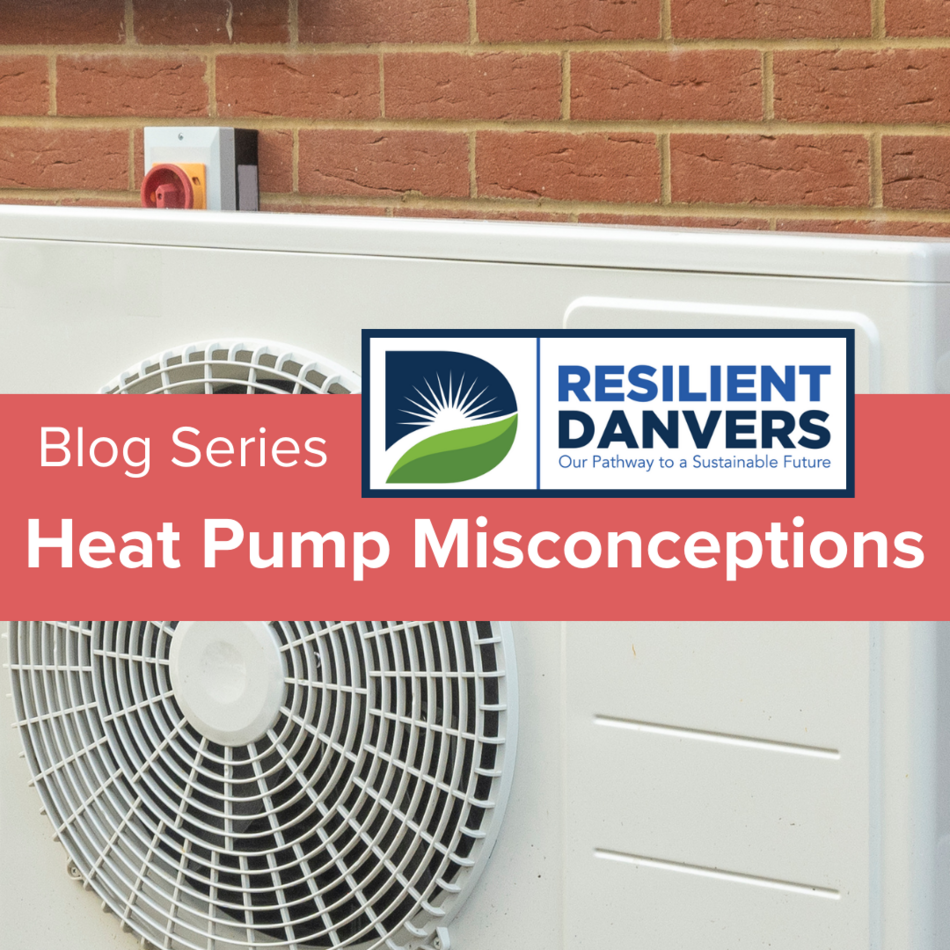Hey Danvers! Today, we are talking about heat pumps, one of the highest-impact changes people can make at home to reduce their carbon footprint. There are a lot of misconceptions around heat pumps, and we’re here to knock them out one by one!
#1 Heat Pumps Don't Work When It’s Cold
This is a misconception that can be concerning for East Coast communities that experience cold winters like Danvers. Luckily, while older heat pump models had low heat output and relied on costly electric backup heat, modern cold climate heat pumps have high heat output and don’t need backup heaters. So, even as the snow piles up, you can stay warm with a heat pump.
#2 Heat Pumps Are Too Expensive to Operate in my Home
While there's a common misconception that heat pumps are prohibitively expensive, their initial cost is often offset by long-term savings. Although the upfront investment might seem higher, heat pumps typically yield significant savings on energy bills over time, leading to a substantial return on investment. Additionally, many governments offer incentives, tax credits, and rebates for installing energy-efficient heating systems like heat pumps, further reducing the overall cost. Check out some financial programs out here!
#3 Heat Pumps Only Provide Heat
Not everything is in a name! Contrary to the misconception that heat pumps solely generate heat, they are versatile systems capable of both heating and cooling. Heat pumps operate by transferring heat from one area to another. In colder months, they extract heat from the outdoor air or ground (depending on the type of heat pump) and move it inside to warm your home. Conversely, during warmer months, they reverse the process by removing heat from indoors and expelling it outside, effectively cooling the indoor space.
#4 Heat Pumps Take up a Lot of Space
The idea that heat pumps take up a significant amount of space is not entirely accurate. Heat pumps come in various types and sizes, offering versatile installation options suitable for different spaces. While some models might require outdoor units, they don't necessarily occupy a large footprint. Ductless mini-split heat pumps, for instance, consist of compact indoor air-handling units connected to an outdoor compressor, which can be discreetly mounted on walls or ceilings, requiring minimal space. Even traditional heat pumps with outdoor units often take up less space than expected, especially considering their combined heating and cooling functions, which would otherwise necessitate separate systems.
#5 Heat Pumps Need More Maintenance than Other HVAC Options
Contrary to the misconception that heat pumps require more maintenance compared to other HVAC systems, they actually often demand less frequent upkeep. Heat pumps are designed with fewer mechanical parts than traditional heating and cooling systems, resulting in reduced maintenance needs.
Want to learn more about heat pumps and explore your options? Check out our Heat Pumps dashboard page!
Previous Post
Climate Change & Public Health
Next Post
All About Trees in Danvers

